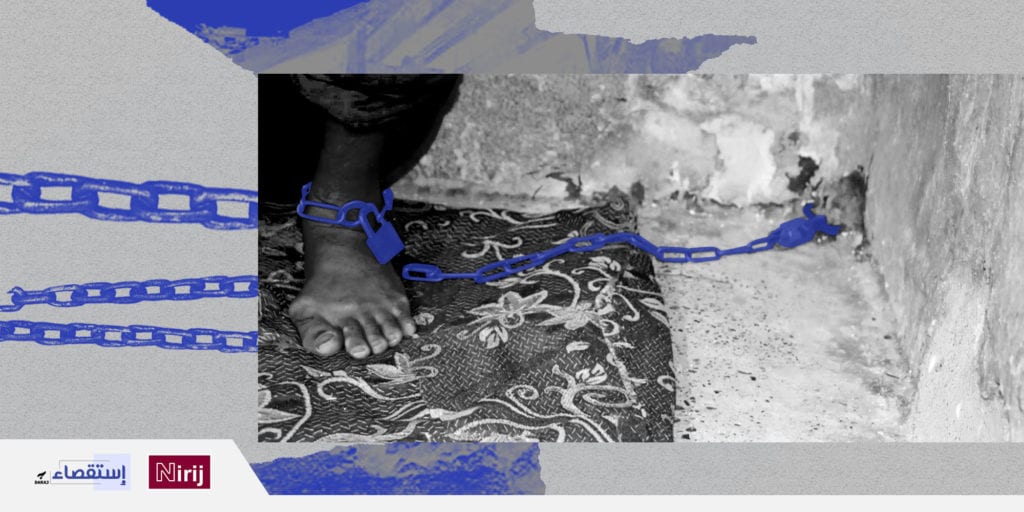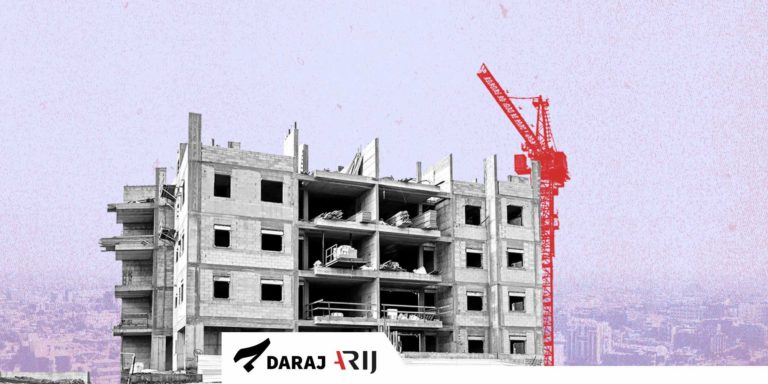Eighteen years after the US-led invasion of Iraq and the overthrow of Saddam Hussein, Iraqis still witness grave human rights violations, especially in the country’s prisons. The thin line between the concepts of the state and the gang still prevails.
Saddam, his sons, and the Baath regime behaved in a manner not even remotely based on the rule of law. Security and intelligence bodies had free reign and for decades Iraqis were confronted with a bloody repression.
Under Saddam, the state systematically used torture to suppress any form of dissent or opposition against the the ruling Ba’ath Party. The security forces tortured detainees to extract information and “confessions” or just to intimidate and punish them. They created whole new ways of how to inflict pain, all the while certain they enjoyed full impunity.
“Torture victims in Iraq have been blindfolded, stripped of their clothes and suspended from their wrists for long hours,” states Amnesty International’s 2001 Systematic Torture of Political Prisoners report.
“Electric shocks have been used on various parts of their bodies, including the genitals, ears, the tongue and fingers. Victims have described to Amnesty International how they have been beaten with canes, whips, hosepipe or metal rods and how they have been suspended for hours from either a rotating fan in the ceiling or from a horizontal pole often in contorted positions as electric shocks were applied repeatedly on their bodies. Some victims had been forced to watch others, including their own relatives, being tortured in front of them.”
“Other methods of physical torture described by former victims include the use of falaqa (beating on the soles of the feet), extinguishing of cigarettes on various parts of the body, extraction of finger nails and toenails and piercing of the hands with an electric drill. Some have been sexually abused and others have had objects, including broken bottles, forced into their anus.”
The American Example Following the 2003 US-led invasion, the situation hardly improved. It even worsened. US forces offered the country a new model, as illustrated by the Abu Ghraib scandal. The whole world saw the images of American prison guards humiliating and torturing Iraqi prisoners.
In the years that followed, as the masters of the “new Iraq” began to take control of the state, the thin line between state and gang further faded, and the cries of the prisoners continued to be heard from the very places Saddam had used for years.
The first notable step downhill was the policy adopted by successive ministers of justice to accept former militiamen to work in the penitentiary system. This was part of the integration plan that preceded the ISIS invasion in 2014. Thus, the authorities established the (political) base for the massive rights violations in prisons. Today mafias administer everything that is forbidden from within the prison walls.
The Iraqi Penal Code criminalizes torture: “Any employee or public servant who tortures, or orders the torture of an accused, witness, or expert in order to compel that person to confess to committing a crime, to give a statement or information, to hide certain matters, or to give a specific opinion will be punished by imprisonment or detention. The use of force or threats is considered to be torture”.
Yet, state officials have never faced any significant penalties. The same practice prevailed before the American-led invasion.

Sectarianism
Numerous reports and studies shed a light on life in Iraqi prisons. Most point at a dominant culture of sectarianism. An estimated 39,000 men, women and their families have been subjected to abuse, ill-treatment and sectarian discrimination in prison.
Apart from suffering from overcrowded cells and limited medical access – many inmates suffer from scabies, allergies, skin rashes and other diseases – the sectarian factor has become apparent. A report by the Baghdad Center for Human Rights states that prisoners are separated on the basis of sect.
Prison Conditions
Human Rights Watch (HRW) has called upon the Iraqi government to pass legislation addressing the shortcomings in the Iraqi legal system. The Iraqi authorities used to declare the total number of Iraqi prisoners. But off late they have refused to do so. This has made it impossible to assess whether the state of overcrowding has been reduced.
Many detainees have complained about the poor prison conditions. Some detainees “received wormy food, or rotten meals most of the time, and expired medicines.” As for water, some Iraqi prisons offered prisoners one small 250ml bottle a day.
Many prisoners have experienced hunger. This appeared to be the case for the inmates of Taji Prison north of Baghdad, which prompted prison guards to set up a business selling bottles of water, canned goods and dry foods for up to 8 times the market price.
Selling fruits and vegetables, bottles of water and bread by guards has been going on for years, often with knowledge of the prison administration. Those who do not have money take on loans, telling the guards that the family will pay.
Sexual Assault
Regarding human trafficking, organ trade and prostitution, life inside Iraqi prisons is not much different from outside the walls. An extensive investigation launched by the security and judicial authorities in January 2021 in three of the country’s main prisons showed horrific human rights violations. The most prominent were related to officers and officials being involved in crimes of sex trafficking among inmates.
On March 30, 2021, the head of the Iraqi Reform and Change Foundation, Sabah al-Kinani spoke in a TV interview about the abuse within Iraqi prisons. He revealed that gangs include senior prisoners, who received long prison sentences for numerous crimes. In October, Kinani was arrested for taking bribes.
The prison gangs collaborate with prison officers to transfer young men to their prison to sexually abuse them. The trafficking of teenagers and young adults can reach prices of up to $10,000.
Women Get What Men Get
The way women are dealt with in prison is little different from the way it was done in pre-2003 Iraq. Many are arrested not necessarily for suspected crimes but for activities of their male relatives, or their support of Iraqi militants,
Abuse and torture are not limited to adult men. Teenagers and female prisoners too have been subjected to beatings, electric shocks and rape. Others are threatened with sexual assault of either themselves or their daughters.


Blackmail
Iraqi prisons have become an important source of income for corrupt officers and lower ranked staff. Extortion of detainees has not stopped nor receded under the government of Mustafa Al-Kazemi.
HRW received complaints from parliamentarians confirming the rampant corruption in prisons, which includes extortion of prisoners or their families in exchange for food, a better cell or better treatment.
Sometimes the judge orders detainees to be released, provided they are not wanted in other cases. Yet, prison officers will bargain hard with the family in order to approach other departments to issue a letter stating the detainee is not wanted.
If the family does not pay up, the detainee may see his file referred to another governorate which has a case with a suspect’s name similar to the detainee’s, so he can be investigated. In this way the detainee’s release may be delayed for years.
Another form of extortion concerns sick detainees. The guards will extort money from the prisoner’ family in order for food or medicine to be allowed in, or to refer him to hospital. In the same way a prisoner’s living conditions may be improved. In some provinces, including Nineveh, there are prisons in which air-conditioned cells are rented out to well-to-do prisoners.
Read Also:
Prisoner Deaths
On August 3, the United Nations issued the report “Human Rights in the Administration of Justice in Iraq: Legal Conditions and Procedural Guarantees to Prevent Torture and Ill-Treatment.”
Based on interviews with 235 detainees, as well as prison staff, judges, lawyers, and families of detainees, the report states, among other things, that “methods of assault include severe beatings, electric shocks, stress positions, and suffocation.” It also speaks of “acts of sexual violence,” while some detainees referred to “treatments they cannot talk about.”
About half of the detainees said that they were tortured during interrogation with the aim of extracting confessions. Human rights groups have criticized the practice. Detainees often end up admitting to crimes they did not commit.
The interrogation centers in Baqubah, Tasferat al-Rusafa, Ramadi and Hilla saw the highest number of victims who died as a result of torture. The investigations launched by the security and judicial authorities in January 2021 confirmed the use of torture through electric shock, stabbing, burning, and deprivation of food and water.
Information from the forensic medicine department in Nasiriyah shows that 18 inmates died in the month of July 2021. Most bodies were handed over to their families with death certificates pre-prepared by the Nasiriyah prison health center without further examinations.
Doctors in the department confirm that many of the victims appear to have died as a result of a criminal act. They also said the delivery of the victims’ bodies was deliberately delayed. They were left in the prison for several days until they were so swollen it was difficult for relatives to see if it had been a natural death and or one caused by beating or torture.
Visiting Rights
Rights violations in Iraqi prisons are not directed at prisoners only. Relatives may be deprived from visiting rights. Several testimonies confirm that prison administrations, especially those of Taji, north of Baghdad, and Al-Hout in Nasiriyah, allow for about one visit a month, exclusively for women and children. They require visitors to come early and wait for long hours. Those coming from afar must travel a day before and stay overnight.
Impunity Reigns
The Iraqi government denies human rights violations take place in Iraqi prisons. They also deny torture occurs in its prisons. They only acknowledge prisons suffer from overcrowding and poor medical capabilities.
Human rights observers and activists indicate that numerous legal procedures are not respected. For example, interrogations under judicial supervision should take place within 24 hours of arrest. In Iraqi security centers this, as well as access to a lawyer, is systematically delayed.
Iraqi security forces have committed numerous abuses and the government has taken minimal action to bring to justice those responsible. The government has investigated allegations of abuse and atrocities, but has rarely punished those responsible.
The Iraqi government furthermore remains silent about the thousands of cases classified under “terrorism,” which often have sectarian motives. It even defends the measures taken, claiming they are carried out in accordance with international law.
Although mechanisms have been put in place to record allegations of torture, they are often ignored. As a result, most detainees choose not to report incidents out of fear for reprisals.
Most reports and testimonies speak of “impunity” for government officials, security forces, the Popular Mobilization Forces, and the internal security services of the Kurdistan Regional Government. HRW described the Iraqi judiciary as “weak and plagued by corruption” and claimed that “trial procedures are below international standards.”


More Stats
A distinction must be made between different kinds of prisoners. Detainees still in the investigation stage do not fall under the Ministry of Justice, but under law enforcement, as part of the Ministry of Interior.
According to statistics of the Ministry of Justice, there are some 50,000 Iraqi prisoners, about half of whom have been sentenced to death. Practically no one knows the exact number of prisons and their location. All what has been issued remains speculation.
The AFAD Center claims the twenty most prominent factions in the country each run a prison. For example, Hashd al-Shabak in Nineveh has a prison in the Artillery Field School and the Hezbollah Brigades have one in Jurf al-Sakhr, al-Nujaba have one in al-Qadisiyah, and so on, all the way to al-Qaim, where the Tafouf, the Sayyid al-Shuhada and al-Imam Ali factions have detention centers. The Babylon militia has a detention center in Tel Kaif in an abandoned Baath Party building.
In two years more than 100 detainees died in government prisons as a result of systematic torture.
Of the 285 cases of detention that were investigated, no one interviewed by the United Nations reported the presence of a lawyer. Detainees often even reported they struggled to inform their families of what was happening to them.
Of the 1,406 complaints received by the Supreme Judicial Council in 2020, only 18 investigations were closed. The High Commission for Human Rights in Iraq said that it received only 960 complaints in 2020, including 22 complaints of demonstrators who claimed they were tortured in detention.
This report was prepared in cooperation between the Foundation of the “Mashreq and Morocco Forum for Prison Affairs” and the “Organization to End Impunity in Iraq.”
Read Also:








